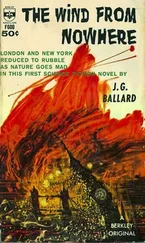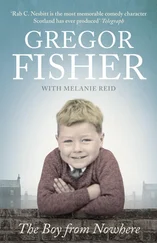Oates looked down into the aborning day, seeing it arrive clean. Nothing moved among the pines, but higher, the aspen were in a state of constant agitation. The air was cool and smelled of sage and the mountain freshness of the high country.
Stella rose. “I’m going to check on Nellie.”
Oates nodded. “Thanks for the sandwich.”
For the next half hour Oates studied the terrain below, but saw no sign of life.
Then, as the morning brightened, a movement caught his eye. A solitary horseman was riding past the mesa, his head turning constantly as he checked his back trail.
The man rode a fine black and had a rifle across his saddle horn. Oates looked closer, but the rider vanished into the trees and was gone from sight.
Did the man look familiar? Oates racked his brain. There had been something in the way he carried his head that struck a chord with him. Where had he seen the mysterious rider before, and was he one of Darlene’s gunmen?
Somehow he felt that the man added up to trouble. But for whom?
Angrily, Oates slapped the rock beside him.
Damn it! Who was that man?
Chapter 21
As the women and Sam Tatum stretched out in the meager shade of a twisted cedar and slept, Oates maintained his lonely vigil at the mesa rim.
Less than twenty minutes after he’d sighted the mysterious rider, Darlene McWilliams and her brother had led a dozen men through the trees, following in the man’s tracks. The Halleck boys, father and sons, were among them.
She’d brought her wagon with her. The big freight with its huge, iron-rimmed wheels was slowing her down, but she seemed unwilling to be separated from her ill-gotten fortune by leaving it behind with the herd.
Oates shook his head in frustration. Now Darlene and her gunmen were ahead of him, cutting off the route to Heartbreak.
Maybe, once he and the others cleared the Gila, they could swing north and go around their pursuers. But there was a problem: Where exactly was Heartbreak?
Stella had only a vague idea, and it was possible they could wander in the wilderness forever, or at least until they starved to death or were overtaken by winter. They might end up hoping the Apaches would arrive and put them out of their misery.
Oates rose to his feet. Tired as he was, he no longer wanted to watch helplessly from the mesa while events unfolded below him. He made up his mind. It was time to find out where Darlene was headed and see if there was any way of avoiding her.
Quietly, Oates saddled the paint and filled his canteen, then kneeled and gently shook Stella awake.
He quickly told her what he’d seen from the rim. Then, fearful of waking the others, he whispered, “I’m going after Darlene and her boys. I need to know where they’re headed.” He smiled. “Once I find out, we can take a different route.”
Alarm showed on Stella’s face. “You’ll come back?”
“Of course I’ll be back. I’ll return before dark.”
Stella laid her fingertips on the back of Oates’ hand. “Be careful, Eddie. The Hallecks are a handful just by themselves. You might be riding from one kind of trouble into something a lot worse.”
Oates’ smile grew. “Don’t worry, Stella. I’m not that brave, you know.”
Oates headed east along a confused trail of horse and wagon tracks left from the morning. The land began a steep ascent and he rode through forests of fir, spruce and aspen. Once a huge black bear watched him from the dappled shade of the trees, then shrugged, deciding that he was nobody of importance.
After a mile the wagon tracks turned northeast, along the rim of a canyon that Oates guessed carried the unquiet waters of the Gila River. Riding closer, he saw that the walls of the bluffs were at least two hundred and fifty feet high, and, as Darlene McWilliams and her men had done, he gave the canyon a wide berth.
Now the terrain abruptly sloped downward and Oates rode through a high desert woodland of cedar and piñon, with sycamore growing closer to the creeks near the canyon.
The day was very hot, the burning sun well up in a sky the color of washed-out denim. The wind felt like a dragon’s breath, and under his high-button coat Oates’ shirt was sticking to him with sweat. He drew rein, shrugged out of the coat and draped it over the back of his saddle. Then he wiped the damp brim of his fancy plug hat and settled it back on his head.
He was jumpy, on edge, not liking the situation. By rights he should go back, get the others together and convince them to return to Alma. Now that the Apache menace was over, Cornelius Baxter and his vigilantes might welcome them with open arms. He could forget Heartbreak, forget avenging the death of old Jacob Yearly and resume his career as . . . what? Town drunk?
Back at the mesa, he’d more or less told Stella that he was a coward, and maybe he was. That thought was always at the back of his mind, keeping company with the whiskey bottle.
Oates’ shoulders slumped in the saddle. Returning to Alma was a way, and once he would have accepted its path. But it was his way no longer. He must keep telling himself that. . . .
He kneed the paint into motion and again followed the trail.
Oates crossed several shallow creeks as he headed northeast, parallel to the canyon that seemed to go on forever. He was riding through a stand of mixed piñon and cedar when he stopped suddenly and faded into the shadows.
Coming directly toward him was the hammering sound of a running horse.
Oates had left the trail at this point, though he’d kept it in sight. The big wagon needed open ground and had kept away from the wooded areas as much as possible. But, uneasy as he was, Oates had no such luxury. He preferred to stay to whatever cover he could find.
The rider, a man bent over in the saddle astride a tall, black horse, galloped past Oates’ hiding place. The running horse was kicking up such a cloud of dust that Oates caught only a single, fleeting glimpse of the rider; then he was gone. A few tense seconds passed; then four other horsemen rode into the dust, trailed by their own billowing, yellow cloud.
Whoever he was, the man on the black horse was the same rider he’d seen from the mesa that morning and Darlene McWilliams’ men were pressing him close.
Oates heard shots. Then the sound of the running horses faded into the distance.
Riding out of the trees, Oates considered his options. But since the enemy of his enemy could only be a friend, he knew what he had to do. He swung the paint around and set his heels to its flanks.
Dust swirled over him as Oates followed on the heels of the McWilliams riders. Now he heard a steady volley of shots ahead of him and he slowed the mustang to a walk. After a few hundred yards, the shooting grew louder and he swung out of the saddle and led the paint into the trees. He slid his Winchester from the scabbard and went ahead on foot.
The McWilliams riders had the man treed somewhere and were closing in for the kill. Oates’ mouth was dry and he was as nervous as a whore in church. He gulped down his fear like a dry chicken bone and walked forward, his rifle slanted across his chest. Four against one was not good odds. But four against two wasn’t a whole sight better.
A massive granite boulder blocked Oates’ path, a stand of prickly pear growing at its base. He rounded the rock and took in the situation at a glance.
The mysterious rider was holed up at the top of a shallow saddleback ridge. Dust still drifted in the air, so he’d obviously ridden up there. Scattered cedars grew along the hollow of the saddleback, and among them Oates saw the outline of a man’s head. He had removed his hat, or had lost it, and now and then he picked a target and fired his rifle. As far as Oates could determine, he had made no hits.
Читать дальше












